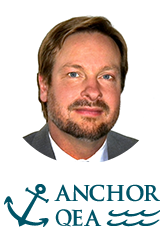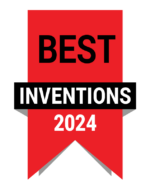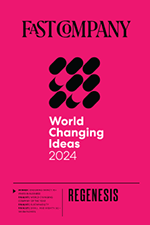 For Mike Gefell, Principal Scientist at Anchor QEA, a nationally recognized environmental and engineering consulting firm and valued REGENESIS client, understanding the complexities of groundwater and protecting this resource deserves great attention, and it is an aspect of our environment he has devoted his entire career to. His specialized field, known as quantitative hydrogeology, involves the analysis of hydrologic processes, including precipitation, groundwater flow, water-well yield, discharge to surface water, and water quality. With 29 years of industry experience in hydrogeology, Gefell has become a highly respected specialist. “I really enjoy quantitative hydrogeology,” says Gefell. “Collecting various types of data in the field, conducting technical evaluations to create a picture of what is happening at a site, and predicting outcomes based on the type of remediation implemented—it’s all quite fascinating. All my work focuses on protecting ecological and human receptors and water resources, and understanding the relationships between water and environmental risk.” He also appreciates the inherent and diverse challenges of environmental remediation. He continues, “I like the fact that hydrogeology is so complex, multifaceted, and highly variable from site to site—and it’s constantly changing.”
For Mike Gefell, Principal Scientist at Anchor QEA, a nationally recognized environmental and engineering consulting firm and valued REGENESIS client, understanding the complexities of groundwater and protecting this resource deserves great attention, and it is an aspect of our environment he has devoted his entire career to. His specialized field, known as quantitative hydrogeology, involves the analysis of hydrologic processes, including precipitation, groundwater flow, water-well yield, discharge to surface water, and water quality. With 29 years of industry experience in hydrogeology, Gefell has become a highly respected specialist. “I really enjoy quantitative hydrogeology,” says Gefell. “Collecting various types of data in the field, conducting technical evaluations to create a picture of what is happening at a site, and predicting outcomes based on the type of remediation implemented—it’s all quite fascinating. All my work focuses on protecting ecological and human receptors and water resources, and understanding the relationships between water and environmental risk.” He also appreciates the inherent and diverse challenges of environmental remediation. He continues, “I like the fact that hydrogeology is so complex, multifaceted, and highly variable from site to site—and it’s constantly changing.”
The Path to a Career in Quantitative Hydrogeology
Prior to joining Anchor QEA over three years ago, Gefell practiced quantitative hydrogeology with other environmental firms, with a focus on quantifying the flow of water and oily substances known as “non‑aqueous phase liquids” (NAPLs) through spaces in soil, sediment, and rock. Prior to working in the environmental industry, he earned his bachelor’s degree in geological sciences from Cornell University and a master’s degree in geology (with a focus on structural geology) from the University of California, Davis. However, it was not until after he earned his master’s degree that he decided on a career in environmental remediation. He shares, “When I finished grad school, the petroleum industry was in a lull, but I was fortunate to have a personal connection to a firm that was hiring new graduates with degrees in geology. The environmental industry had gotten started already, and it continued to grow after that.” For ongoing education and training, Gefell often attends conferences and participates in technical working groups for ITRC (Interstate Technology and Regulatory Council) and ASTM International. He continues, “I also attend the Battelle Chlorinated and Sediments conferences, RemTEC, the biennial MGP series, and NGWA meetings.”
An Innovative Remediation Design for PFAS and VOC Contamination
When asked what he likes most in working with REGENESIS, Gefell points to a unique relationship between both companies. He shares, “REGENESIS understood our team’s vision and collaborated with us to help realize our objectives.” With regard to recent successes using REGENESIS products, Gefell highlighted the SRSNE Superfund Site project, which was unique because of the manner in which PlumeStop® and AquaZVI™ were used. “These two REGENESIS products were injected into a system of subsurface, gravel-filled trenches,” he describes. “The trenches were designed to collect, convey, and distribute groundwater passively, without pumping. PlumeStop® and AquaZVI™ were selected because of their combined ability to treat PFAS and VOCs, allowing us to replace an expensive pump-and-treat system that had been operating continuously for 23 years. By injecting the treatment reagents into the engineered groundwater flow path, we eliminated guesswork about whether or not we would hit the target with the injections.” To ensure the project’s overall success, Gefell and his team designed a treatment zone to facilitate adequate water flow. He continues, “We created a treatment zone to our own specifications, and the affected groundwater has no choice but to flow through it for proper treatment. The hydraulic aspects of the design were interesting, and we used groundwater flow modeling to accomplish that. Also, a tiny yet important detail was the comparison between the size of particles in the PlumeStop® and AquaZVI™ injections versus the pore sizes within the natural soil. We successfully worked through that with REGENESIS to help ensure the groundwater would continue to flow freely through the system and into the downgradient soil.”
Residing in Golden, CO, where he works from Anchor QEA’s nearby office in Lakewood, CO, Gefell is married and has two sons. In his free time, he enjoys playing guitar and is especially a fan of vintage rock ‘n’ roll. He also finds time for biking, archery, skiing, hiking, and walking many of the trails near his home. In addition, he provides support to the Greenwood Wildlife Rehabilitation Center and other organizations that serve environmental causes. He serves as the Technical Spotlight Editor for Groundwater journal, a leading international publication focused on groundwater and its role in the environment. When asked about the most rewarding aspect of his work, Gefell is quick to point to how much he enjoys working with smart, creative people to solve challenging problems, using new technologies and methods, while also having fun. And the most challenging aspect of his work? “The sheer complexity of the systems we study and the problems we solve—3D, time-variable with multiphase flow, chemical and biological complexities with evolving regulations, public sensitivities, client expectations, and demanding deadlines.”
When asked what he feels the future holds for environmental remediation, he says, “The purpose for remediation is to protect ecosystems and people from potentially harmful substances. As more toxicological testing is conducted, more will be learned about substances that are not yet regulated, and new ones will likely be added to the list at some point in the future. These emerging compounds will drive the next wave of remedial responses. The current focus on PFAS is a good example. I also believe remediation will continue to shift toward problems that are larger and more complex.”
REGENESIS is proud to have Mike Gefell, Principal Scientist at Anchor QEA, as a valued client in environmental remediation and appreciates his specialized knowledge and ongoing efforts in providing successful remediation outcomes for REGENESIS and its clients.

 Americas
Americas Europe
Europe Français
Français Deutsch
Deutsch Italiano
Italiano Español
Español



